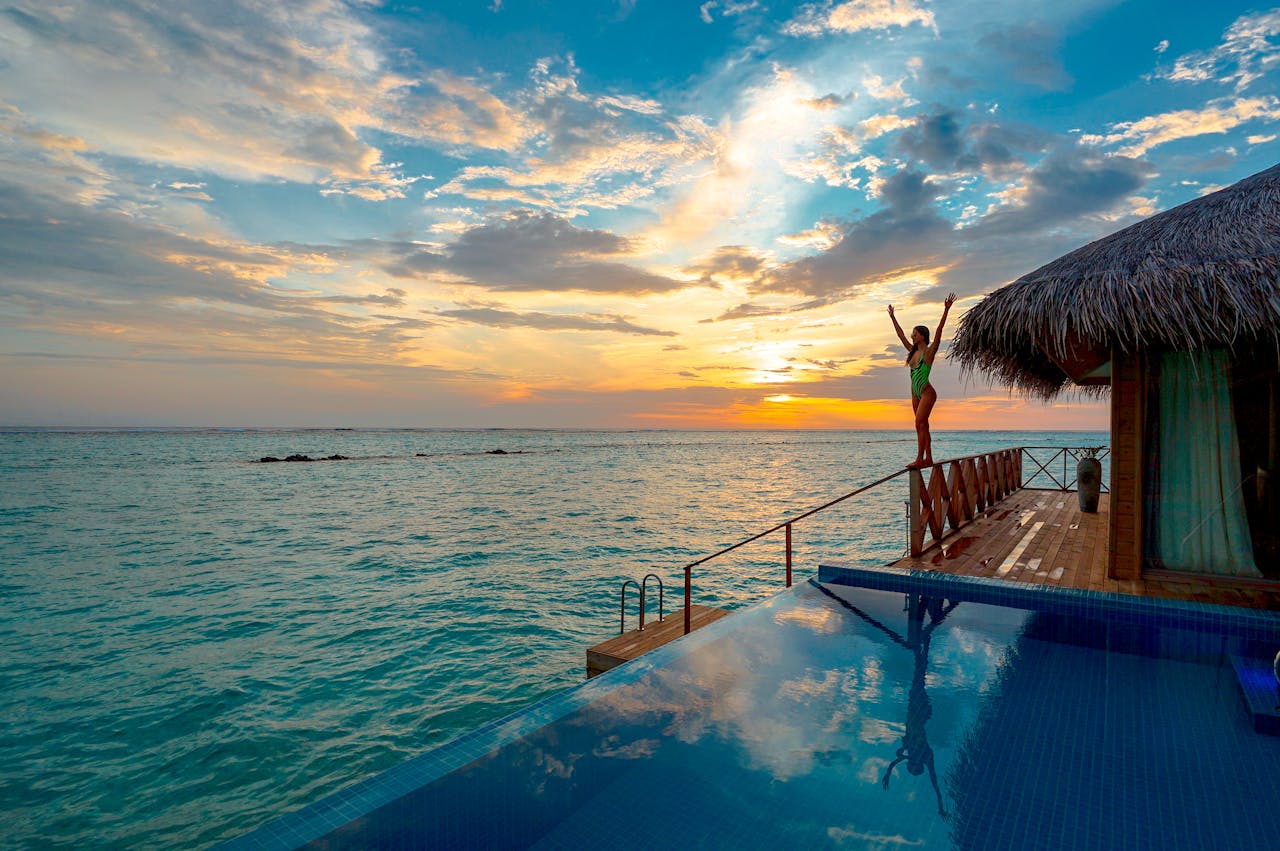
Luxury travel is changing for two reasons: one, today’s luxury traveler is not just a millionaire anymore, and two, the definition of “luxury” is evolving beyond opulence to cover unique, personalized experiences. Of course, some of the lavish elements of this travel market still apply, from private jet hires to high-end accommodations.
The new luxury traveler, it seems, does not need to have a multi-million dollar net worth. According to a McKinsey report, 35% of travelers have net worths between $100,000 and $1 million.
As aspirational travelers, they may spend money on only one lavish aspect of luxury travel. They may book accommodations with a well-known luxury hotel or spend on an air charter service for a relaxed and stress-free journey.
All these changes are driving how businesses in the travel industry are responding, influencing what luxury travel will look like in the future.
What Counts as Luxury Travel?
Curation is at the heart of every luxury trip. The affluent and discerning traveler has a specific idea of what their destination will be and how it will turn out. But the activities, and for moneyed travelers, the destinations are also evolving.
Here are the top trends influencing the future of luxury travel.
1. Hyper-personalized and Elevated Experiences
Yes, the affluent traveler will choose the best that money can buy. As a majority of luxury travelers become younger, there is a strong priority toward authentic, unique experiences — the best money can buy — and a move away from possessions.
The standard opulent amenities and services are no longer cutting it for luxury travelers. The wealthy tourist wants experiences that are tailored to their preferences. This may mean booking at a one-of-a-kind hotel that can arrange, for example, a tasting menu at a local restaurant just for the traveler for an experience that’s entirely authentic to the area.
In the past, curated luxury experiences included taking a lavish $10,000 champagne bath in a 15th century Italian villa or having access to free-flowing Dom Perignon in a Charleston boutique hotel. The future of luxury travel will still involve pricey bubbly, but the bath may turn into a hot spring bath at an exclusive wellness resort and the free-flowing Dom could be a private gourmet cooking class with a Michelin-starred chef.
2. Affordable Luxury
Because aspirational travel is gaining ground, the hospitality industry is responding with offerings that make luxury affordable. The new demand has been bolstered by the restrictions placed during the pandemic.
The average tourist is looking to catch up on what they’ve missed and preferring to do it in style. The hospitality industry, on the other hand, wants to make the most of revenue.
Affordable luxuries can include upgrades to business class instead of the usual economy, catching an empty leg flight on a private jet, or opting for butler service with a private villa.
3. Cross-Brand Alliances
As luxury travel becomes increasingly accessible to the average tourist, the affluent now seek more exclusivity with their journeys. The luxury brand ecosystem is responding by collaborating with hospitality businesses, like hotels, resorts, restaurants, and even railway companies.
One example is the super luxurious One&Only Reethi Rah in the Maldives. The award-winning beach resort has teamed up with Italian fashion house Missoni to develop the Missoni Resort Club. Another example is Gucci, which has explored new ways to present its luxury brand to consumers through culinary experiences with posh restaurants in Florence, Tokyo, and Los Angeles.
Another cross-brand alliance in the luxury market is between Accor Hotels and France’s SNCF Group, which runs the world’s most luxurious train, the Orient Express.
4. Digital Transformation
The future of travel is going digital, as expected. With the rise of artificial intelligence and virtual reality, these innovations will figure in accommodations and travel.
The high-end guest, for example, can customize their experiences with an IoT-enabled in-room feature.
Digital and mobile tech will be at every touchpoint of the luxury traveler’s experience. Through tech-driven services, travelers no longer have to wait in line. Chauffeured cars can come with AI chatbots. Travel agents can provide advanced AI booking software, making booking personalized and efficient.
5. Emerging Destinations
Lake Cuomo in Italy. Oahu in Hawaii. Côte d’Azur in France. These are just some of the hottest luxury destinations in the world, but the wealthy set are adding a few more unexpected places.
The destinations of the future are upping the ante in amenities, setting new standards in luxury travel. The soon-to-open Amaala in Saudi Arabia is one visionary example. The luxury destination will unveil six lavish hotels, including amenities that blend wellness, the arts, and the spectacular natural beauty of the Red Sea.
Amaala will also run on 100% renewable energy, committing to minimal environmental impact.
When this massive project is completed by 2027, it will be known as the “Riviera of the Middle East.”
Other emerging destinations for luxury holidays include:
- Antarctica
- Portugal
- Iceland
- Croatia
- Japan
6. High-End Wellness
A lot of high-end hotels and resorts offer experiences that soothe the mind, body, and soul. Customized spa experiences, yoga retreats, and culinary offerings prepared for the individual are all common in luxury destinations.
Future luxury travel will see a focus in new age retreats, wellness plans, and preventive health experiences. The wealthy will check into luxury spas and medi-clinics to receive personalized sessions with doctors, therapists, and nutritionists or dietary specialists.
Apart from high-end spas and wellness resorts, self-care sanctuaries also offer holistic care, helping jet-setters recover from stress, surgery, or injury. Instead of spending half of their time at a hospital, the luxury traveler can integrate their treatment at a posh resort or hotel.
7. Travel Advisors
Luxury doesn’t always have to mean high-end accommodations and pricey experiences. For some people, luxury means freedom from the stress of dealing with the nitty-gritty of travel. From research and booking to payment and itineraries, every aspect of the trip can be managed by the travel advisor.
The luxury travel agent will offer advice on destinations and experiences. They will make all the arrangements. They will be on-call before, during, and after the trip to ensure everything goes according to plan.
For the luxury traveler, nothing should ever interfere with their holiday. And travel advisors are a luxury they cannot do without.
The usual lavish elements will still be part of future holidays for the elite and tastemakers. But luxury travel is transforming, with the influx of modern travelers and the rise of innovative technologies.
Related Articles:
– 25 Best Travel Blogs in 2024: Top Travel Blogger Websites in the World
– Top 5 Travel Tips for a Stress-Free International Adventure: Your Guide to Smooth Travels
– How to Start a Blog in 2023 – 10 Super Easy Steps + Bonus Tips
– The 8 Elements of Travel
– Everything You Need to Know About Travelling
– Virtual Thrills Await: Exploring Yas Island Top VR Experience
– How to Travel Like a Pro Without Spending a Fortune on Hotels

